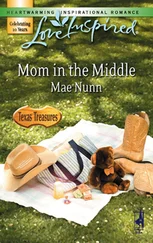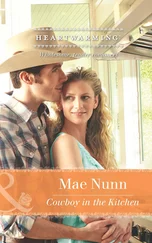It was quiet in the car, a little stuffy. Ike cracked his window a bit. He could hear the sound of the surf, an occasional bit of music caught on some draft and carried among the oil rigs from the beaches below. Once in a while he could hear voices. He thought of the blackened fire rings he had seen by day, and wondered what they must be like by night, alive with flames. They waited in the car. Hound was silent, checking his watch. Ike could feel the sweat on his back, on the palms of his hands. The air that crept in from the partially open window was tainted with the odors of the fields, the heavy scent of some obnoxious gas. Hound reached across Ike and opened the glove box. Something solid slid across some papers and thumped against the metal of the lid. And in the flicker of light from the box, Ike could see that it was a handgun. Hound said nothing. He picked the gun up and slipped it into the large pocket on the front of his shirt, then snapped the lid closed.
After what seemed a very long time, Ike was aware of movement on the beach side of the car. There were several figures there, moving among the oil rigs and pieces of chain link fence.
“Come on,” Hound said, “let’s go.”
Hound reached behind his seat as they got out of the car and grabbed a large paper bag. The doors slammed shut and they walked toward the edge of the cliffs. There was a handful of people there, among the shadows. Ike counted six, all dressed in white T-shirts and dark pants.
When they had moved closer, he could see that it was a group of boys—maybe high school age, or younger—and that they were Mexicans. They were spread out in a loose half circle. As Hound and Ike reached them they turned and moved closer to the edge of the cliffs. Ike and Hound followed, across a set of railroad tracks and then back behind one of the rigs. They were hidden from the road here, near a ravine that split the cliffs and revealed a section of beach below. Looking down, Ike could see a fire, couples dancing in the orange light, and beyond it, the white lines of breaking waves moving across a black sea.
The boys had money for Hound. Hound gave them the bag. Ike was surprised at how young these guys looked, not at all like the people he had imagined. Somebody had a pipe going. It was passed to Ike and he took a hit, passed it on to Hound Adams. “Hound,” one of the boys said. “Tony wants to know can you get more of those pictures, the good ones, man, like this.” He flashed a picture toward Hound and Ike. There was a chorus of laughter from the circle. They were squatting in the light of a rig, but still it was hard for Ike to make much of the photograph. He could see that it was some kind of porno shot. He’d seen a set of spread thighs, a dark patch of hair. Hound nodded. “Sure thing, you got the bread.”
“You should give them to us free, man, bonus for your customers.” There was more laughter.
“Nothing’s free,” Hound told them. Ike was still thinking about the vanished photograph. What was there? A splash of color across the skin, red like blood? He would have liked another look, but the picture was gone and Hound was standing up to leave. The boys got up too, and soon they were out of sight, vanishing among the shadows of the trail that led through the ravine, back to the beaches. Ike brushed at the knees of his pants, tried to recall a single face from among the group and realized he could not. He could only remember the voices, the white flashes of shirts, and the splashes of light on the black pointed shoes.
* * *
When they were back in the car, Hound passed Ike the roll of bills. “Count it,” he said. He leaned over and put his handgun back into the glove box as Ike counted the money.
“Not bad for a night’s work?”
Ike agreed.
“Now it’s your turn.”
They drove back toward town with Ike wondering what Hound had meant, back toward the cluster of light that marked the intersection of Main Street and Coast Highway, toward the long, graceful line of light that was the Huntington Beach pier stretching into the Pacific.
They cruised slowly by the pier entrance on their first run, then looped around to come back from the other direction. This time Hound made a left turn off the highway and pulled into one of the long rectangular parking lots beneath the pier, the same lot in which he had fought the bikers. When they had parked, he killed the engine and turned to face Ike, his hand resting on the console between the seats. “How’d that board work for you today?” he asked.
“Okay. I’d like to try it in some easier waves.”
“End of the swell.”
Ike nodded.
“You’ve got potential,” Hound told him. “You stayed out there today. Surfing is as much a mental activity as it is a physical one.” Hound paused and Ike stared across the hood toward the dark stretch of beach. “I brought you with me tonight,” Hound said, “because I wanted you to see some things. There’s an idea I want you to think about.” Hound paused again and Ike looked at him for a moment, finding something disconcerting about the intensity with which Hound Adams seemed to be studying him. “You work on engines,” Hound said. “That requires a certain skill, and a certain knowledge. You have to have an understanding of the various systems that make up the engine, how the systems work together. Basically, what you have to understand first are the principles upon which the thing operates, so that it, like surfing, like everything else, is mental as well as physical. There is always this problem of understanding certain underlying principles. Am I right? Are you following me?”
Ike nodded. He was staring back toward the dark beach now, wondering where this new flight of Hound’s would lead, how it might connect with the new surfboard he had assumed he was to begin paying for tonight.
“Well, look around you,” Hound continued, “I told you there were other ways of making a living around here besides working on bikes. I might have said there are other sorts of machines you can work on, because you can work on this town just like it was an engine. You can make it work for you, make it do what you want it to. And you don’t have to get greasy doing it. You don’t have to get shoved around by some Neanderthal like Morris. What you do have to do is get a grasp on the underlying principles upon which the machine operates.” Hound paused again, waited a moment, and then went on. “Now you’ve seen one principle in operation tonight. A very simple one: supply and demand. I had what those greasers out by the oil wells wanted. I know what they want and I know how to get it. All they know is what they want. They’re in the dark about everything else. They’ll bust their asses at some job all day long, always at the mercy of the machine. Now admittedly those guys are at the bottom of a certain process, but the principles apply all the way to the top. That principle of supply and demand is always around. You lose a board and want another. I can give you one. I can give you your pick, in fact, but now you can do something for me.”
Hound opened the console between the seats and produced a small plastic bag containing perhaps half a dozen joints. “What you can do tonight,” Hound said, “is hang around the pier for a while and find some young girls who want to party.”
Ike stared stupidly at the plastic bag. It was somehow a request that did not make much sense. He had never guessed that Hound Adams wanted for girls to party with, and he did not think that was the case now.
Hound seemed to tap into what he was thinking. “The Samoans like young tail.” He smiled. “Not an uncommon like. So I could buy it. I could also get girls I already know. But then neither of those possibilities strikes me as being very interesting right now. There is a constant turnover of girls in this town, and I like meeting new ones. It has become another aspect of the machine I’ve learned how to use, and I can use someone like you, some good-looking young guy who can meet chicks with no problem.”
Читать дальше
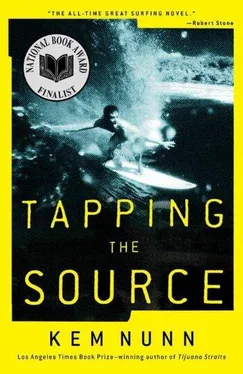
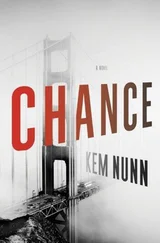





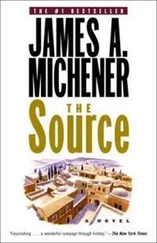
![Джеймс Купер - Пионеры, или У истоков Саскуиханны [The Pioneers, or The sources of the Susquehannah]](/books/395797/dzhejms-kuper-pionery-ili-u-istokov-saskuihanny-t-thumb.webp)
